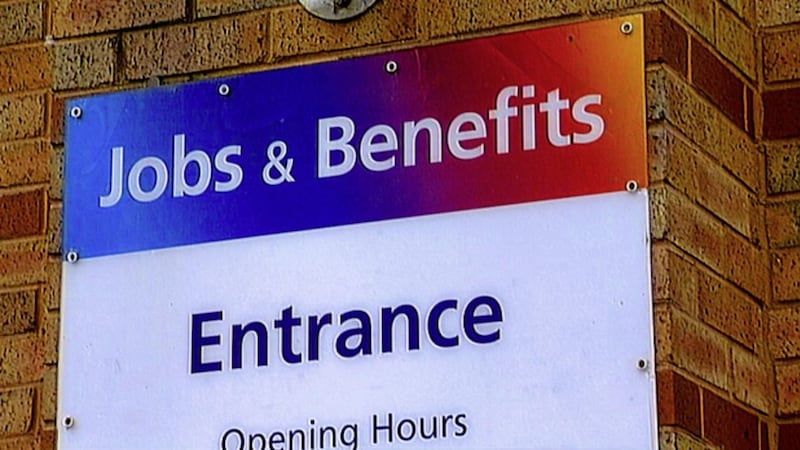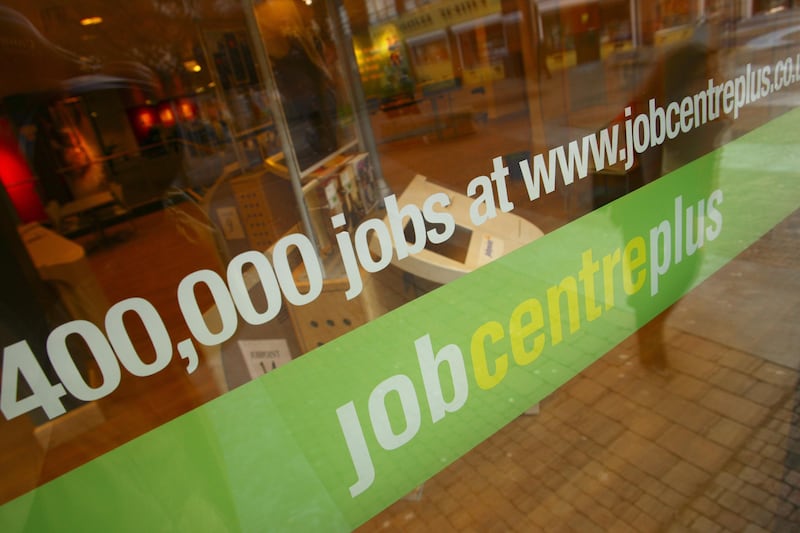FRESH employment data in Northern Ireland points to the fact that a UK-wide slowdown in economic output linked to Brexit uncertainty and broader global trends are beginning to impact.
The north's unemployment rate crept up from 2.8 per cent to 2.9 per cent - which is a full percentage point lower than the UK rate and, as one economist puts it, it "still ridiculously low".
The number of people in jobs in the region also suffered its sharpest decline in months in the June-August quarter, falling back by 0.3 per cent (or 11,000 jobs) to 71.5 per cent from its previous record high.
And in another major sign of weakening in the labour market, a total of 1,452 redundancies were proposed in September - four times more than the previous month (331) and the highest monthly total since 2003.
Ulster Bank chief economist Richard Ramsey said there is a variety of indicators within the latest data to that suggest that the market is on the turn, but that the weaknesses must be put in the appropriate context - "namely that Northern Ireland’s labour market has never been stronger".
He said: "These monthly statistics have provided a plentiful source of positivity in recent years. Unemployment has hit lows that no economist forecasted and employment has never been higher,and even this latest Labour Force Survey reveals some more record highs around male employment.
"Over the last quarter, economic inactivity has also rebounded off its record low. The total number of weekly hours worked in June-August period fell 3 per cent from the record highs in the first half of 2019."
He said the labour market news in September was dominated by Wrightbus going into administration with 1,200 redundancies, but it could be that many of these jobs will be saved following the proposed acquisition of the Ballymena firm by a new investor in Jo Bamford.
Mr Ramsey added: "Looking ahead, Northern Ireland’s labour market is set to weaken in coming quarters given the marked deterioration in business conditions that has occurred in the third quarter.
"It looks increasingly likely that quarter two represented Northern Ireland’s labour market peak for jobs and trough for unemployment. Ongoing Brexit uncertainty has been translating into negative economic and business outcomes. Ultimately these outcomes impact on investment plans, staffing levels and the labour market in general."
Among the statistics in the report, median full-time weekly earnings in Northern Ireland was £521 over the period, the fifth lowest out of 12 UK regions (the overall UK average is £569 a week).
Not unexpectedly, the highest wages are in Belfast (£565),with the lowest-paid being workers in the Causeway Coast and Glens are (£431).
Matt Hughes, deputy head of labour market statistics at the ONS, said: "Employment growth has cooled noticeably in recent months. Among the under-25s, the rate has actually started to fall on the year.
"And pay growth continues to outstrip inflation, as it has done for over 18 months now."
The GMB Union has described the latest unemployment figures Iwhich in the UK as a whole increased by 22,000 to 1.31 million) as ‘alarming’.
General secretary Tim Roache said: “At a time when the UK is standing on the brink of damaging no deal Brexit, real people's lives and families are being put in jeopardy.
“Tens of thousands of people and families will now be wondering how they're going to pay the bills, or whether they’re going to have to turn to food banks.
“We could be heading for recession and the only jobs Conservative MPs seem bothered about it their own. We need action now to create jobs and increase confidence in the economy.”








